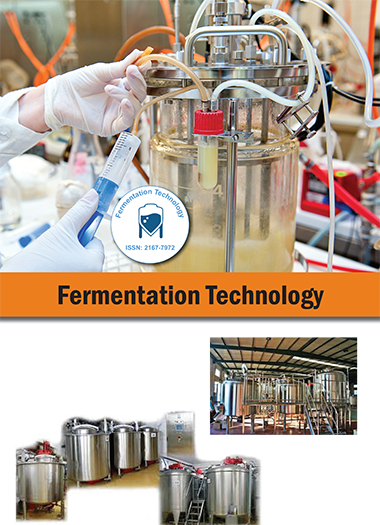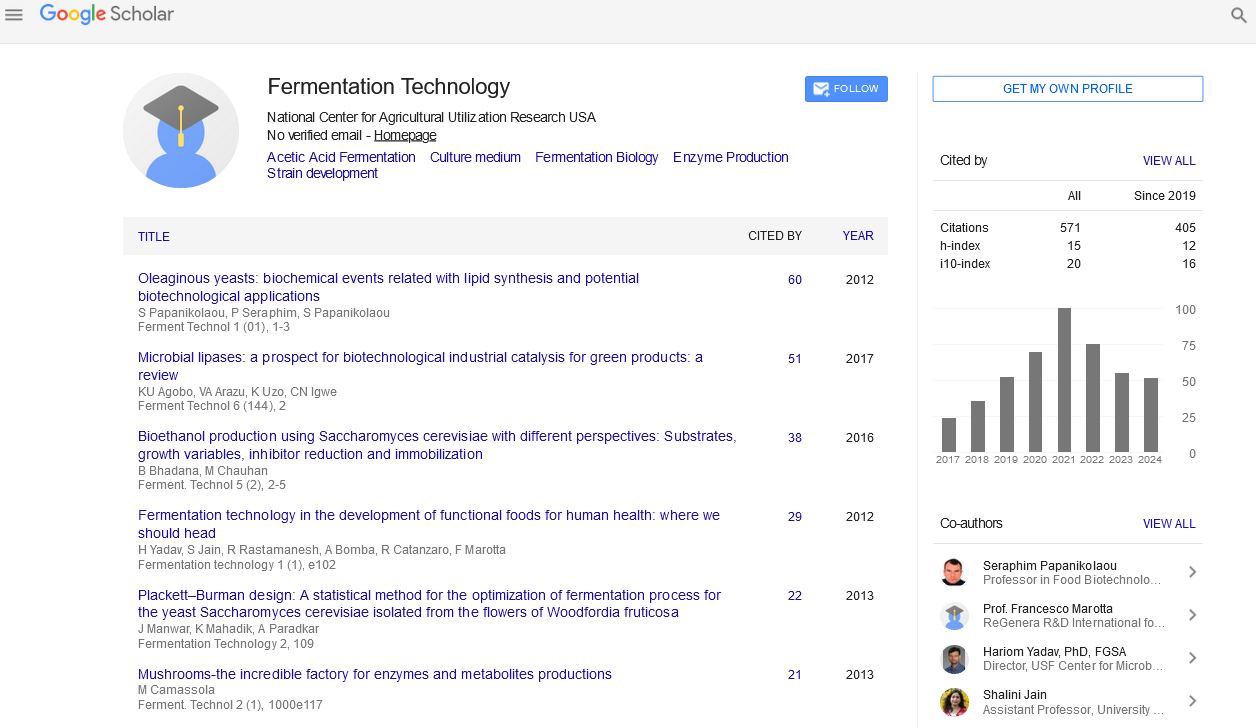Indexed In
- Open J Gate
- Genamics JournalSeek
- Access to Global Online Research in Agriculture (AGORA)
- RefSeek
- Hamdard University
- EBSCO A-Z
- OCLC- WorldCat
- Publons
Useful Links
Share This Page
Journal Flyer

Open Access Journals
- Agri and Aquaculture
- Biochemistry
- Bioinformatics & Systems Biology
- Business & Management
- Chemistry
- Clinical Sciences
- Engineering
- Food & Nutrition
- General Science
- Genetics & Molecular Biology
- Immunology & Microbiology
- Medical Sciences
- Neuroscience & Psychology
- Nursing & Health Care
- Pharmaceutical Sciences
Probiotics feeding suspension increases Tilapia susceptibility through inducing gut dysbiosis
World Congress on Beneficial Microbes: Food, Pharma, Aqua & Beverages Industry
August 25-27, 2015 Valencia, Spain
Zhigang Zhou, Zhi Liu and Wenshu Liu
Feed Research Institute of Chinese Academy of Agricultural Sciences, China
Scientific Tracks Abstracts: Ferment Technol
Abstract:
Probiotics, putative Lactobacillus and Bifidobacterium, have been considered as a promising alternative for the chemical agents and antibiotics in aquaculture industry, and have been extensively applied in the control of increasing outbreaks of infectious diseases. Probiotics benefit effects on aquatic fish were enormously documented, but the risk assessments were rarely investigated. Here, 5 different Lactobacilus strains, L.p JCM1149, L.breus JCM1170, L. acidophilus JCM 1132, L. delbruekii subsp. Bulgaricus MGA17-3, and L. fermentum S20-4, were chose as probiotics supplemented with experimental diet for tilapia feeding. After 14 days continuous feeding, tilapias were subjected for 3 days probiotics suspension treatment, and then were challenged against Aeromonas hydrophila NJ-1 infection. Except L. b JCM1170, all other probiotics feeding suspension significantly triggered tilapia susceptibility to A. hydrohila. We further determined that probiotics poor colonization in tilapia intestine mucosa resulted to their quick disappear in host gastrointestinal tract, which broke the gut homeostasis, including gut microbiota, metabolites (bile acids, amino acids, and glucose), intestine epithelium permeability, intestine alkaline phosphatase, but not heat shock protein or inflammation factors, and collectively impaired tilapia‚??s health and resistance to pathogen challenge. To our knowledge, this is the first report about probiotics application risk assessment in aquaculture field. Since aquaculture system is an open environment, harboring both target aquatic products and abundant water-borne pathogens, and the continuous feeding schedule is impossible to be strictly executed due to the unpredictability of climate changes or farmers subjective behaviors, we believe our novel model not only reveals a pathogen invasion pattern, but also directs our further research and application of probiotics in aquaculture.
Biography :
Zhigang Zhou has completed his PhD at the age of 28 years from Institute of Hydrobiology, Chinese Academy of Sciences and postdoctoral studies from Shantou University. He is the director of Department of Aqua Nutrition and Feed, Feed Research Institute of CAAS with the subject “fish gut microbe”. He has published more than 60 papers in reputed journals.
Email: zhou_zg@msn.com

